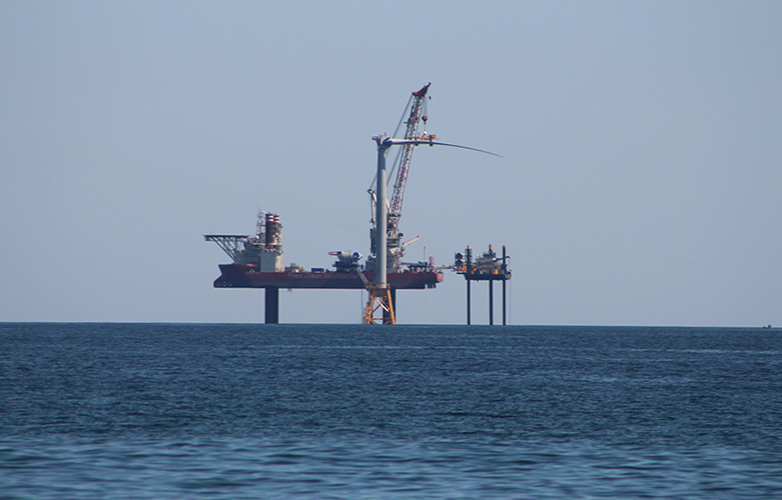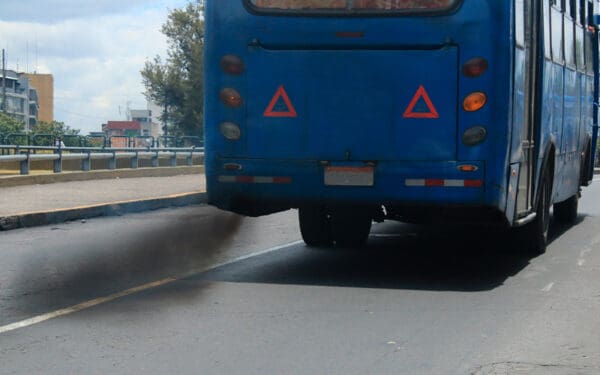
We urgently need to reform federal and state permitting processes for reviewing energy infrastructure projects. The just-passed measures in the debt ceiling bill could make the process worse. Photo: Laurie O'Reilly
Last week, President Biden signed a bill his administration had negotiated to suspend the nation’s debt ceiling and keep the country from defaulting on its financial obligations. But a quarter of the resulting law – 27 of its 99 pages – has nothing to do with borrowing or spending. Those pages made hastily-drawn changes to laws governing federal agency reviews of the environmental impacts of major energy and other infrastructure projects.
With the urgent need to build new clean energy infrastructure, we certainly need to rethink, revise, and speed up how federal and state agencies plan and make decisions about such projects. But the measures included in the debt-ceiling law will fail in their ostensible purpose while undermining essential safeguards for communities. Most likely, these latest ‘reforms’ will result in protracted litigation and more oil and gas development approvals – the antithesis of the actions we need to accelerate the clean energy transition and end our reliance on fossil fuels.
Here’s what’s wrong with the just-passed measures – and where there are opportunities for advancing real reform in the aftermath of the debt-ceiling deal.
The Just-Passed Reform Will Do Little to Speed Up Permitting Processes
Beyond codifying deadlines and page limits for specific types of documents required under the National Environmental Policy Act (NEPA), which may make permitting more efficient and accessible, there is little good to say about the just-passed reform measures.
The NEPA amendments are rife with new definitions, procedures, and legal standards developed without public input or scrutiny. Those will all likely trigger protracted litigation as both supporters and opponents of specific projects test the limits and exploit ambiguities in the new measures.
Moreover, the bill fails to address one of the most significant needs to secure the nation’s clean energy infrastructure: improvements and additions to our electrical grid to share power across regions, bring more clean energy to the grid, and improve overall grid reliability. Instead, the bill calls for a government study to be presented to Congress in 30 months.
Extended litigation, more studies – these will not expedite the permitting of much-needed clean energy projects but mire them down in even more process.
Mountain Valley Pipeline Got a Pass – and Congress Set a Terrible Precedent
The most disturbing part of the permitting reform bill is its authorization of the controversial Mountain Valley gas pipeline, a problem-plagued project that would cross West Virginia into Virginia. A federal court recently declared – not for the first time – that the project’s environmental review failed to satisfy NEPA. By legislating its approval, Congress has undermined judges’ role in enforcing environmental laws. And by barring further legal challenges to the pipeline, Congress has shut down the voices of frontline communities who have raised compelling concerns about the project.
Congress should not be second-guessing and overriding federal courts enforcing the law. Approving the Mountain Valley pipeline by legislative fiat sacrifices the legal rights of the communities and advocates battling the project, diminishes bedrock environmental laws, and undermines the judicial system.
A Better Path Forward
Meeting the climate crisis with the urgency and action it demands will require substantive changes to federal and state permitting processes to allow for better planning and speedier deployment of clean energy – and the supporting transmission lines and other infrastructure it will require. The just-passed measures in the debt ceiling bill will not accomplish that, but more promising proposals are pending in Congress, including bills filed by Senators Markey, Whitehouse, and Hickenlooper.
Thoughtful permitting reform has the potential to expedite reviews of projects needed for the clean energy transition and avoid and minimize damage to sensitive natural resources. It also can strengthen the voice and leverage of historically overburdened communities that have been hit first and worst by pollution and climate change. Giving these communities the resources they need to evaluate and shape projects can allay local concerns and eliminate and mitigate adverse impacts. Mandating a neutral mediator or decision-maker early in the process can help force consideration of alternatives and avoid the years of litigation needed to get before a federal judge when disputes arise.
The closed-door crucible of the debt ceiling negotiations is not a venue for thoughtful solutions to complex and contentious issues. Hasty changes to well-established laws to appease a congressional majority beholden (on both sides of the aisle) to the fossil fuel industry will only be a boon to that industry and a further insult to the communities that have borne the brunt of energy infrastructure for the past 100 years.
CLF will continue to advocate for the balanced reforms we need at both the federal and state level. Unfortunately, the permitting provisions of the debt ceiling law threaten to add to the dysfunction of a broken system while further polarizing the debate we need on how to fix it.



